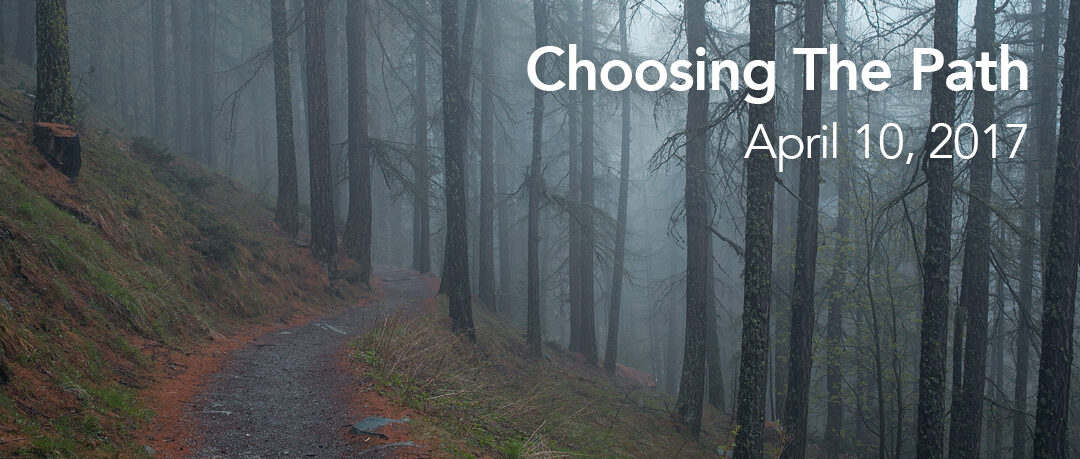By Robert Finley
Hosea 14 and Deuteronomy 30
“If you want to live well, make sure you understand all of this. If you know what’s good for you, you’ll learn this inside and out. God’s paths get you where you want to go. Right-living people walk them easily; wrong-living people are always tripping and stumbling.” From Hosea 14:9 (MSG)
Living right is elusive, but it’s not exactly mysterious. I’m so prone to pretend that it’s baffling, though. Hard to grasp.
“Lord, what should I do?” I ask that question sometimes. Do you? Sometimes, I ask it even when I’m standing with an open Bible in my hands at a fork and God has clearly marked the path. It’s not because I can’t see which way the arrows point, and it’s not because I can’t read a map, that I do this.
One of the things about the Living God, as compared to all the pretenders, is that he is so careful to communicate to us, clearly, how we must live before him in the specific details of our lives. He is also careful to point out to us what we are, deep down in our blood and bones: beings made to be like him and to be with him, who have decided to do things the way we want to.
Hosea’s echoing Moses, who put these words down before Eugene Peterson massaged them into this: “This commandment that I’m commanding you today isn’t too much for you, it’s not out of your reach. It’s not on a high mountain—you don’t have to get mountaineers to climb the peak and bring it down to your level and explain it before you can live it. And it’s not across the ocean—you don’t have to send sailors out to get it, bring it back, and then explain it before you can live it. No. The word is right here and now—as near as the tongue in your mouth, as near as the heart in your chest. Just do it!” (Deuteronomy 30:11-14)
Remember, as Moses and Hosea remind us, Israel, and we, will choose our own paths, and sometimes those paths will lead to horrible places. And though we choose our own paths right in God’s face, he tells us that he loves to pick us up and set us on the paths that he knows lead to good places.
Is this true, though? I don’t always act like I believe so. It’s so easy to think, “This might be pointed at me, or other people in particular, or Israel pre-Jesus, but am I really the audience for this?” It is so easy to hear another voice that sometimes whispers gently, and sometimes screams like a savage, “That’s not for you. No. You had your opportunities, and you waved them off. You told yourself there’d be plenty of time for that, later. How long ago was that?”
Today was Palm Sunday. I found myself, as on most Sundays, in the company of other believers, engaged in the Lenten spot on our rhythm matrix. I’ve done this every year now for about nine years. It’s never the same, but the continuity is solid as a concrete dam. I need that hard continuity. When I listen to God speak through Hosea, and hearken back to Moses, when Isaiah gives me a preview of Christ being crushed for me, and I hear Jesus himself saying, “Eli, Eli…”, I think what I’m getting is, “Hey. I’m talking to you. Come on. Let’s just go.”


